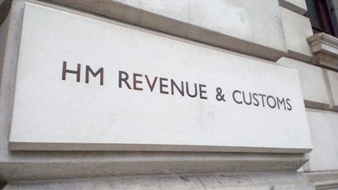リヒテンシュタインにおける資産保全について

2020年11月
寄稿者:リヒテンシュタインの代理店、ATU (Allgemeines Treuunternehmen)
(本記事はリヒテンシュタインにて信託や財団サービスを提供しているATU社より寄稿いただいています)
以下はATU社の役員でもあり、資産運用の経験を豊富にもつRodger Frick氏(ロジャー・フリック氏)へインタビューをした内容です。
ATU (Allgemeines Treuunternehmen)社はリヒテンシュタインにて初めて設立された信託会社として90年以上も事業を続けている草分け的存在です。世界各地に富裕層顧客を持ち、テーラーメイドの資産マネージメント及びビジネスソリューションを提供してきました。ATU社では資産のストラクチャリングや保全に対するアドバイスに加え、相続や資産承継プランニングについて扱っています。
ATU社の役員の一人であるRodger Frick氏より、リヒテンシュタインの金融サービスに影響を及ぼしている最新の状況について語ってもらいました。
質問:富裕層は、なぜ資産保全にリヒテンシュタインを選ぶのでしょうか?
フリック氏:リヒテンシュタインを資産保護の国に選ぶ富裕層の多くは、自国の政治不安、複雑な家族構成、不安定な経済、リスクの高いビジネス環境などの問題に面しています。
資産を財団や信託に移すことによって、個人的な生活状況の変化が資産へ及ぼす影響に対する心配から少しでも解放されます。富裕層は資産運用や事業活動を世界中で展開しており、また家族も世界中にバラバラというケースが多いです。よって法的環境や経済状況も複雑なケースが多いのですが、それが資産に悪影響を及ぼすことはあってはならないと思っています。
このようなグローバルな富裕層一家にとって、リヒテンシュタインのようなハイレベルで政治的に安定している国は魅力的です。またリヒテンシュタインはEU(欧州連合)やEEA(欧州経済領域)に触接市場介入することが可能です。その他、リヒテンシュタインが資産運用に適している理由としては以下の理由があげられるでしょう。
- 事業の多様化に適している
- 経済的自由主義国である
- 低い法人税とシンプルな財政システム
- 自由主義に基づく会社法
- 堅実な財政政策
- トリプルAの格付け
- スイスフランが法的通貨である
- インフラが整っている
- 非官僚主義でフレキシブルのため、物事の決断が速い
- 財務的に健全な公共機関の存在
- R&D(研究開発)を多大に支持している点
グローバルな富裕層ファミリーへサービスを提供するのはそれなりのチャレンジがあります。文化の違いや家族不和に対する対応や、グローバルな投資における複雑な法的問題などが常に付きまとうため、弊社は信託の受託者として家族のメンバーとコミュニケーションを密に取り続け、取引は全て透明化し、問題は解決できる範囲を超えないように管理していくことが重要になります。
質問:リヒテンシュタインで組成される任意信託(Discretionary Trust)において受益者(Beneficiaries)はどのように守られるのでしょうか?
フリック氏:信託を組成する人物は信託用語でいう委託者で、弊社のような受託者にとっては顧客に当たります。委託者は委託者としての権利や義務を予見して信託設定書(Trust Deed)に条項を盛り込む権利があります。委託者が信託設定時に決められるのは以下の事項です、
- 信託設定書(Trust deed)は取消し可能(Revocable)か取消し不可能(Irrevocable)か
- 保護者(Protector)に与えられる権利
- 委託者(Settlor)に与えられる権利
- 受託者が相談や指示を受け取る必要がある条件付け
- 受益者(Beneficiaries)の受益請求権の有無、受益者は任意による受益者であるかまたは委託者へ復帰権(Reversionary Rights)があるか否かについて
- これら信託事項に関する報告要件や条件
- 信託期間
- 信託資産について、また受託者による預託資産の管理範囲(STAR信託/VISTA信託であるか否か?など)
- 受託者が法人格である場合における受託法人の社内管理規制。(受託者は法人格である場合が多く、その法人における社内規制や報告義務について取り決める必要があり)
- 義務、権利、守秘義務、CRS報告、税的効果などの全体的なバランス
リヒテンシュタイン信託は資産保護のツールとしてフレキシブルにできています。顧客である富裕層の家族に対して、受益者の権限や保護レベルについて詳細をどこまで伝えるかの意思決定は委託者及び免許を有する弊社のようなプロの受託者に委ねられています。
質問:規制やコンプライアンスがグローバル規模で厳しくなってきていますが、御社の顧客への影響はありますか?
フリック氏:規制やコンプライアンスは主にクロスボーダー案件に対して大きく影響を及ぼしています。そのため、受託者としては監視役としての役割を強化する必要性が大きくなりました。サービスとしてではなく、コンプライアンスに基づいたニーズです。ここ数年のトレンドとしていわゆる「第三者による証拠提出」が必要になってきています。コレスポンデンス銀行、受益者の口座がある銀行、受託者、アセットマネージャーなどは顧客の顧問弁護士事務所や会計事務所などからではなく「第三者」から必要な身元確認書類などを取得する必要があり、そのため費用や時間が多くかかっています。情報の透明化や税務などの情報交換など、世界中の富裕層がその影響を大きく受けています。
質問:現在、御社ではどのサービスやストラクチャーが人気ですか?またそのニーズはどこから発生し、将来はどのように変化していくと思われますか?
フリック氏:最近多いのはドミサイル(*)やパスポートの変更ニーズです。このニーズは今後も増え続けるでしょう。クロスボーダー化が進むことで更に法的に複雑化していくでしょう。顧客の多くは以前に比べ気乗り薄ではありますが規制が強化したこととそれに伴うコストの増加を受け入れるようになりました。当然ですが、コスト増に見合ったより効果的な解決策を期待されます。将来のトレンドは、自国の政府に彼らが支払う税金や個人情報の扱いを任せたくないと思う富裕層によって作られていくとみています。このトレンドは我々の業界にとってはウェルカムで、更に事業拡大につながる機会となるでしょう。
(*)ドミサイルとは:英語で「Domicile」、永住地。居住国に定住する意思のあるものという意味で、英国をはじめとするコモンロー法体系の概念になります。詳細は今月号のニュースレターで扱っております、記事はこちらをごらんください。
今日の世界の傾向には違和感を大きく感じざるおえません。政治家は国境や国間の活動を更にオープンにすると言ってる一方で、それらを管理する規制はどんどん厳しくなっていく一方です。個人的に、世界経済は40年前のマーカンティリズム(重商主義)に逆戻りしている感じがします。
質問:G20、FATF(金融活動作業部会)、OECD(経済協力開発機構)は法人の受益者登録情報公開を進めており2023年にはこれがグローバルスタンダードになると言われていますが、どう思われますか?
フリック氏:これは守秘義務という個人の権利に対する戦争だと思います。受益者登録の公開は脱税やマネロン、そしてテロリスト活動を止めるための対策ではありますが、森にいる蚊を殺すために森林全部を燃やそうとしているようなものです!
EEA(欧州経済領域)国は今後かならずEU主導のマネーロンダリング対策を施行します、他に選択がありませんから。顧客の多くはEEA諸国に資産を置いています。問題は、これらの対策が実際にどれだけの効果を示すかです。顧客がどのように反応するかは予想がつきます、恐らくパスポートを変えて他国に移住するでしょう。人気がある移住国はマルタ、ギリシャ、キプロス、モナコ、イタリア、ポルトガル、スイス、香港そして英国です。
質問:リヒテンシュタインでは新しいストラクチャーなどの新規商品やサービスはありますか?国として将来の計画はありますか?
フリック氏:リヒテンシュタインはスタートアップ企業やSME企業(中小企業)へのサポートを通して技術革新に対する強い支持基盤があります。例えば現地語でIdeenkanalと呼ばれるビジネス企画競争や、R&Dに対する機会創出や現地の投資市場が対象となっています。詳細はドイツ語のみになりますがウェブサイトをご覧ください。(www.innovation-standort.li)またリヒテンシュタインではブロックチェーンサービスに似た独自のトークン法(Token law)の導入が2020年1月に始まりました。
EEA(欧州経済領域)加盟国としてリヒテンシュタインは世界中の起業家にEUのパスポート、リヒテンシュタインをベースとした事業活動、そしてEU諸国との貿易をオファーすることができます。
質問:最後に、リヒテンシュタインは世界の中でも富の保護に最も適した国の一つであると言えますか?
フリック氏:リヒテンシュタインが提供する富の保護システムは非常に専門的です。富裕層の資産保護に関して長い歴史があり、その中で資産保護国としてのブランドを築いてきました。
信託法や財団法はそれぞれ1926年と1928年に作られ、税法はEU/OECDのスタンダードが守られています。
リヒテンシュタインは国のサイズ規模が小さいことから世界的にみて大きなサービスプロバイダーとは言えません。そのため、ブティックサービス、顧客のニーズに合わせたカスタマイズサービスの提供を目指しており、国際基準を守っています。そのことからも、リヒテンシュタインは資産保護国としてこれからも成長し続けると思っています。
ゼットランドではATU社と協業して日本のお客様にも日本語でサービスを提供しております。お問い合わせは intray@zetland.biz まで。
November, 2020
Author: Roger Frick by ATU (Allgemeines Treuunternehmen)
Interview with Roger Frick
For over 90 years, Allgemeines Treuunternehmen (ATU), one of Liechtenstein’s first and leading trust companies has been developing tailored wealth management and business solutions on behalf of families and investors across the globe. ATU’s advisory services focus on structuring, protection and investment of assets, along with inheritance and succession planning.
Roger Frick, a member of the board at ATU provides an up-to-date understand-ing of the developments currently impacting financial services in Liechtenstein.
QUESTION: Why do HNW (High Network Wealth) families choose Liech-tenstein?
Roger Frick: Many HNW families come to Liechtenstein because they are deal-ing with one or more of the following challenges: political instability, a complicated family structure, an unstable economy or a high-risk exposed business environment.
The transfer of assets into a foundation or trust, for example, provides these families with greater security, allowing them to hold their assets in a safe place that is not affected by changes in personal circumstances. Quite often HNW families have bases all over the globe. This means that their legal and economic circumstances are particularly complex. We believe that this should not have a negative impact on their investments.
Liechtenstein is able to offer these families the promise of a high level of political continuity and stability. The principality also of course has direct access to two markets: the EU/EEA and Switzerland. Among other things, Liechtenstein can also provide:
- Strong business diversification.
- Liberal economic policies.
- Moderate company taxation and a simple fiscal system (flat tax).
- Liberal corporate law.
- Solid public financial policy.
- An AAA rating.
- The Swiss franc as legal tender.
- Excellent infrastructure.
- Minimal bureaucracy, meaning flexibility and fast decision-making.
- A financially strong public sector.
- Promotion of research and development.
Working with international HNW families comes with its own set of challenges. This can include negotiating cultural differences, working through family discord, as well as unpacking and coping with the legal complexity of overseas investments. It is important that trustees maintain a continuous dialogue with all relevant family members, that they are transparent in their dealings, and that they ensure that no red lines are crossed.
QUESTION: How are the beneficiaries of a discretionary offshore trust pro-tected under Liechtenstein law?
Roger Frick: The person who sets up the trust is the client, or in legal terms, the settlor. This person has the authority to foresee the various rights and obligations in a trust deed. The settlor can determine or define:
- Whether the deed is revocable or not.
- The protector’s rights.
- The settlor’s rights.
- The conditions where trustees have to consult or receive instruction.
- Whether beneficiaries are entitled to a claim (or not). The settlor can also determine if they are discretionary beneficiaries or if they have reversion-ary rights.
- The reporting requirements and the conditions for these.
- The duration of the trust deed.
- The underlying assets of a trust and the extent to which a trustee can su-pervise and/ or interfere (is it a star/vista trust or not?).
- The internal controlling system of a trustee. The person or corporate trus-tee is normally part of a larger organisation with clear controlling / report-ing obligations.
- The balance of obligations, rights, confidentiality, CRS and tax effects.
The Liechtenstein trust is designed to be a flexible asset protection tool. It is up to the settlor and a qualified, regulated trustee to provide the HNW family with full details of the beneficiaries’ rights and level of protection. When asset protection is a concern, several possible beneficiaries are preferable. This can ensure that there are no legal claims of the beneficiaries that can be attached by third parties.
QUESTION: Have ever more stringent global regulation and compliance demands impacted your clients and how?
Roger Frick: Regulation and compliance has mainly targeted cross-border ac-tivity. As a result, trustees are under pressure to increase their ‘watchdog’ ac-tivities. This is not service driven but compliance driven and impacts all clients. In the last two years, so-called 'third party evidence' has been relied on more and more. No correspondence bank, no beneficiary bank, no trustee, no asset manager and no fund manager can rely on information obtained from a regulat-ed professional. Each of them must get third-party evidence from the client, doubling or tripling costs and bureaucracy. But these are the changes that have to be dealt with, and it doesn’t look like it’s going to get any easier. Together with increased transparency, and exchange of information at the costs of the service provider countries, the impacts on HNW families can be seen everywhere.
QUESTION: Which business structures/services are currently most popular with your customers and where is the main regional source of demand? Has this demand changed in recent years and how could it shift in the future?
Roger Frick: More of our clients are choosing to change their domiciles and passports -- this seems to be an evolving trend. Cross-border movement and activities of course add a new level of legal complexity. Clients, albeit less unenthusiastically than before, are adapting to higher levels of regulation and have consented to the increased compliance costs. They do, as a consequence of these higher costs, expect workable and effective solutions. The shift in future will be led by HNW families who refuse to passively accept what their home governments dictate on tax, transparency and exchange matters. This change will support our business, and as a result of growing demand, we will need more professional staff and more flexibility and readiness to serve.
Today, we are living in a world that seems ever more incongruous. On the one side, politicians speak of open borders and the spirit of free movement, and on the other, we experience ever tighter controls as regulations increase in volume and stringency. I feel that we are edging ever closer toward economic mercan-tilism – a state of affairs that is reminiscent of how things were 40 years ago.
QUESTION: The G20, the FATF and the OECD are promoting public regis-ters of company beneficial ownership and argue that they could become the global standard by 2023. What is your stance on this and how could it affect your client base?
Roger Frick: For me, it is a war against the rights of confidentiality. The reason for imposing public registers of beneficial ownership is to combat tax evasion, money laundering and terrorist financing. You can certainly kill a mosquito with a forest fire!
We will certainly implement the anti-money laundering directives the European Union dictates. What else can an EEA country do? And most clients will have their money in EEA jurisdictions for asset protection purposes anyway. So, the question is, how will the implementation of these rules work in practice and what are the consequences? There is a certain understanding of how our clients will finally respond. We believe that more HNW families will change their passports and residence. At present some of the more popular countries include; Malta, Greece, Cyprus, Monaco, Italy, Portugal, Switzerland, Hong Kong and the UK.
QUESTION: Is Liechtenstein bringing any new structures or products to market? How is the jurisdiction innovating for the future?
Roger Frick: Liechtenstein is a strong promoter of innovation, supporting both start-ups and SMEs. There are several support instruments, such as the busi-ness plan competition (the ‘Ideenkanal’), R&D opportunities, as well as the Liechtenstein investment market. The innovation-standort.li website offers a full overview of the various funding instruments on offer, although readers will need to be able to speak German! Liechtenstein has a unique TOKEN law since 1.1.2020 promoting the tokenization like Blockchain services.
As a member of the EEA, Liechtenstein offers entrepreneurs an EU passport, enabling them to base their business out of Liechtenstein and trade with coun-tries across the EU.
QUESTION: Could Liechtenstein classify itself as one of the world’s default jurisdictions of choice for successful wealth preservation?
Roger Frick: Liechtenstein’s wealth preservation activity is highly specialised. The principality has built itself a strong brand grown from a long history of pro-tecting HNW family wealth. The foundation/trust law, for example, came from 1926/1928. The tax law complies with EU/OECD standards.
While Liechtenstein is not a major market player by any means, in part due to its size, it does make it a firm priority to concentrate on its strengths, to evolve and grow in line with international standards and to put the bespoke needs of its clients first. For these reasons, I am certain that business in Liechtenstein will continue to thrive and grow.












